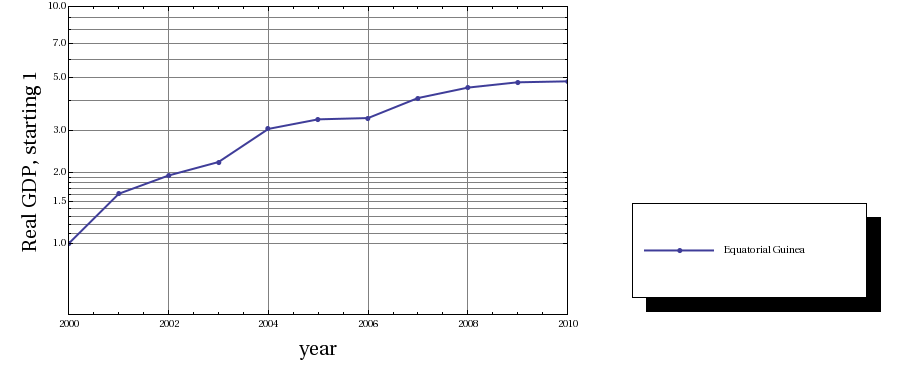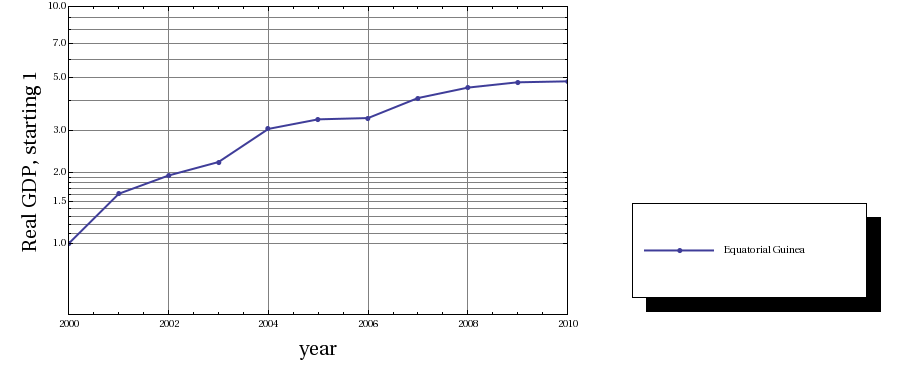Equatorial Guinea has undergone significant economic and social changes since the discovery of oil in the mid-1990s. From being a poor, mainly agricultural country, it has become the foremost oil producer of the franc zone. Oil income has helped to improve basic infrastructure, including roads, schools, hospitals and social housing.
Equatorial Guinea’s main trading partners are the US, China, Spain, Italy and France. Oil and gas are the country’s main exports, with natural gas expected to provide half of total hydrocarbon resources by 2016.
As part of the government’s economic diversification strategy, foreign investors are encouraged to look to the agricultural sector as a new area of growth. Farmers are being trained in the latest techniques and technology to modernise and expand the sector.
According to the African Economic Outlook report of 2013, GDP grew 5.5% in 2012 and 4.9% growth is forecasted for 2013. Equatorial Guinea is among the fastest growing economies on the African continent due to the growth of its domestic industry since the mid-1990s.1 The 2012 budged showed considerable improvement in the management of public resources, and the high cash inflows from oil have brought about deep structural changes in Equatorial Guinea in recent years that are expect to continue over the next decade.
Equatorial Guinea’s GDP growth from 2000-2010:2
- African Economic Outlook 2013
- African Economic Outlook 2012


